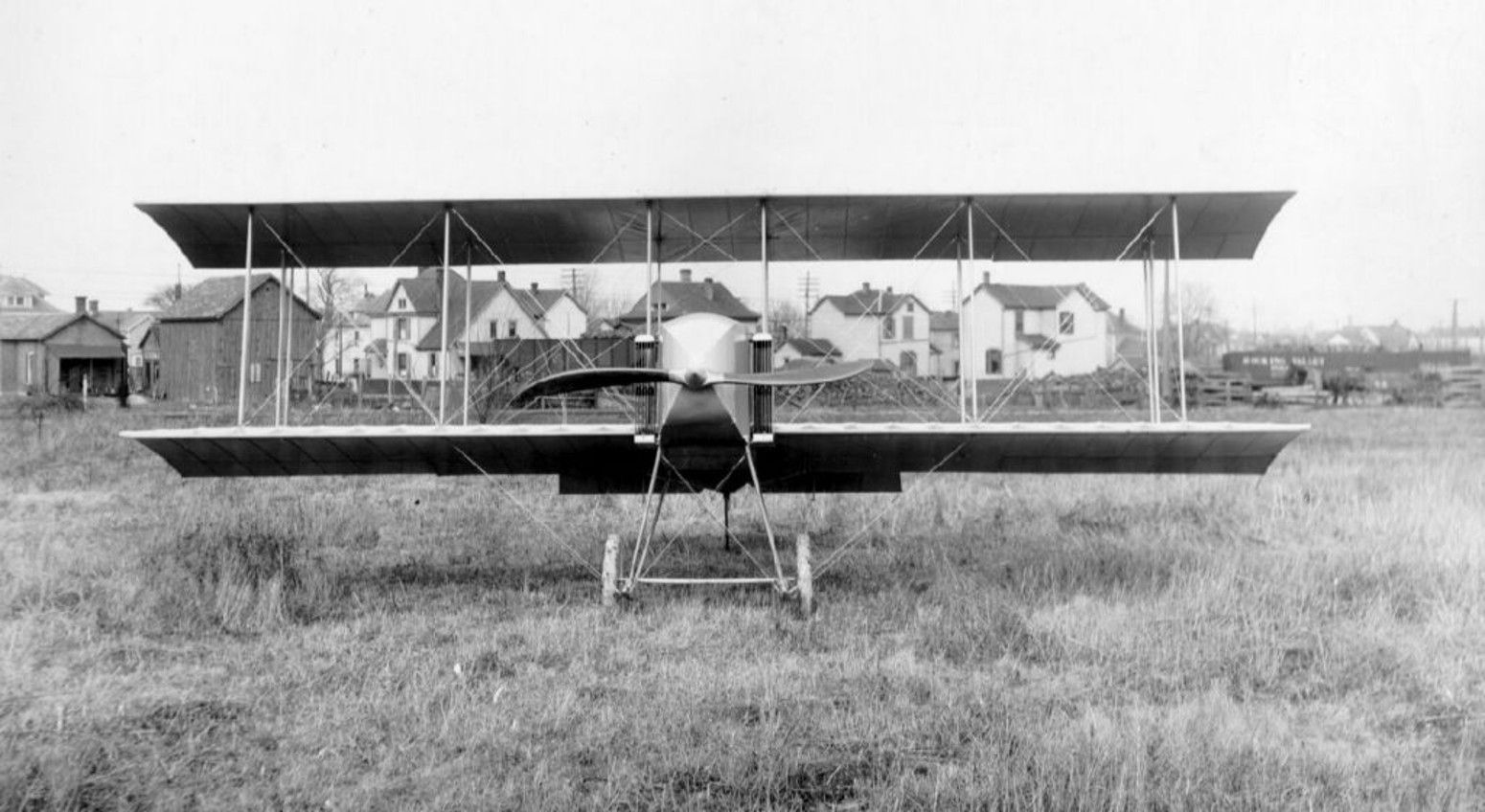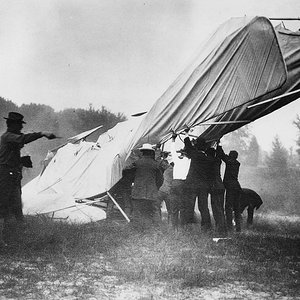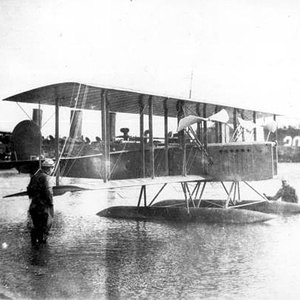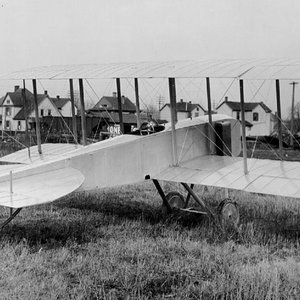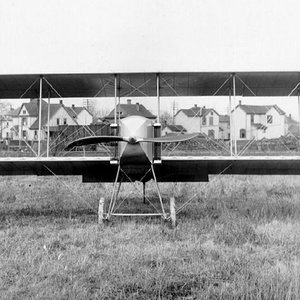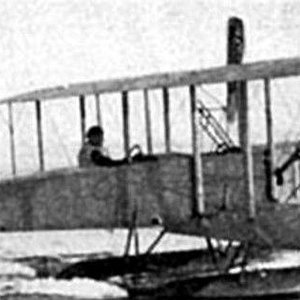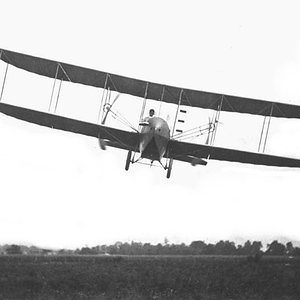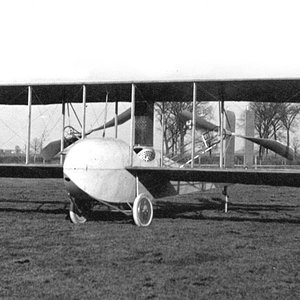Navigation
Install the app
How to install the app on iOS
Follow along with the video below to see how to install our site as a web app on your home screen.
Note: This feature may not be available in some browsers.
More options
You are using an out of date browser. It may not display this or other websites correctly.
You should upgrade or use an alternative browser.
You should upgrade or use an alternative browser.
he Model L was the first – and only – true "second generation" aircraft produced by the Wright Company. A single-seat tractor biplane with standard control surfaces, it was similar in appearance to many of the biplanes being produced for World War I. It was designed for high speed military reconnaissance – a light "scout." It could fly at speeds up to 80 mph (129 kph) and might have achieved higher speeds if it weren't for the drag created by its oversized tail, inherited from the Model K. Its modest performance, boxy appearance, and lack of streamlining made the Wright Model L inferior to many other biplanes that were being produced at the time. It failed to secure any military orders and few were produced.
Wright Model L specifications:
29 ft (8.8 m) wingspan
6.5 ft (198 cm) chord
5.7 ft (174 cm) separation
360 sq ft (33.4 sq. m) wing area
1:20 camber
20 sq ft (1.9 sq m) horizontal rear elevator
8.5 sq ft (0.8 sq m) twin movable vertical rear rudders
24.2 ft (7.4 m) overall length
850 lbs (386 kg) total weight (without pilot)
6 cylinder engine, 75 hp running at 1400 to 1560 rpm
Single direct-drive propeller, 8 ft (244 cm) long
25 to 80 mph (40 to 129 kph) speed range
This was the last airplane produced by the Wright Company. By this time Orville Wright was no longer with the company but we was retained as a consultant, so the Model L is considered the end of the line of aircraft designed with the input of at least one of the Wright brothers.
Wright Model L specifications:
29 ft (8.8 m) wingspan
6.5 ft (198 cm) chord
5.7 ft (174 cm) separation
360 sq ft (33.4 sq. m) wing area
1:20 camber
20 sq ft (1.9 sq m) horizontal rear elevator
8.5 sq ft (0.8 sq m) twin movable vertical rear rudders
24.2 ft (7.4 m) overall length
850 lbs (386 kg) total weight (without pilot)
6 cylinder engine, 75 hp running at 1400 to 1560 rpm
Single direct-drive propeller, 8 ft (244 cm) long
25 to 80 mph (40 to 129 kph) speed range
This was the last airplane produced by the Wright Company. By this time Orville Wright was no longer with the company but we was retained as a consultant, so the Model L is considered the end of the line of aircraft designed with the input of at least one of the Wright brothers.

